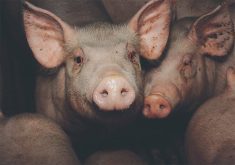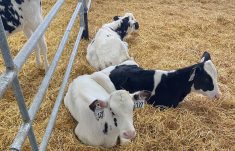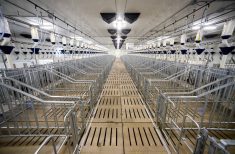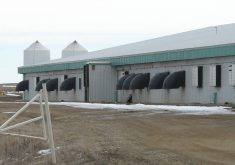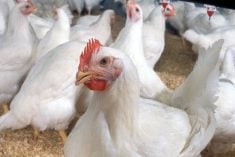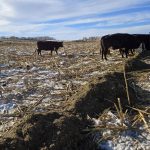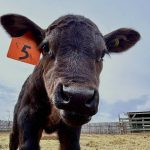Animal welfare. These two words often evoke a strong response from livestock producers across the country who feel that their way of life is under siege by those who don’t understand them and don’t grasp what they do for society.
One just has to look at a few headlines to understand why farmers may feel this way. Animal rights groups are focused on agriculture and they are calling on the public to support their efforts. Often our response has been to be dismissive of the concerns raised. But animal agriculture needs to take a step back from the traditional defensive responses to these issues.
Read Also

THROWBACK: Pro tips for a calving crisis
This article from 2024 walked farmers through common calving issues, and when the dystocia is serious enough that you need…
Activist groups like to portray our producers as heartless exploiters of their animals. But that is simply not the case. All of the farmers I know care very deeply about the welfare of the livestock under their care. Producers go to extraordinary measures, sometimes at significant personal sacrifice, to protect the health of their animals.
Activists do have it wrong, but that is not a reason to dismiss, out of hand, concerns from civil society. Consumers in Canada and throughout our key international markets are demanding to know more about their food. Where does that steak come from? Who produced it? How was it raised?
Governments are responding to these questions. After all, the people asking are the same ones who elect politicians to office. If we agricultural producers don’t answer these questions, the only people left to provide information are the activists.
Governments are not the only ones that are paying attention to the question “where does my food come from?” Our customers are paying attention as well. Large purchasers like McDonald’s and Wal-Mart are developing contracts that specify how the meat they sell must be produced. Our customers are not developing these codes because it makes them feel good, they are taking these steps in response to consumer demand.
New code of practice
Producers should take this trend seriously. We need to tell our story to urban Canadians, who are mostly divorced from the realities of where their food comes from. Producers need to make a much greater effort to demonstrate the high standards of care under which our animals are raised. Our success at accomplishing this goal will determine if the words “animal welfare” will be a nemesis that drags down our industry, or an opportunity to differentiate Canadian products in world markets and enhance our bottom lines.
Beef producers in Manitoba are going to be hearing a lot more about animal welfare issues in the coming year. The National Farm Animal Care Council (NFAC) is in the process of revising the code of practice for beef production. NFAC includes representatives from producer groups (e.g., Canadian Cattlemen’s Association), the federal government, provincial governments and civil society through the humane society. This new code of practice will likely be open for public discussion by the end of this summer or early fall.
Similarly, the Canadian Food Inspection Agency (CFIA) has launched a review of the regulations for the transport of animals. In other words, what regulations need to be in place to ensure animals arrive at their destination healthy?
These processes should be viewed as an opportunity for, not an impediment to, our industry. If the NFAC and the CFIA do their jobs, beef producers will have a clear way of proving to society what we already know — we care about the welfare of our animals.
It is critical that our industry is open to conversations with the public on animal welfare issues. Few people understand the measures farmers take to protect the well-being of their animals. When voters don’t understand agriculture the people they elect don’t understand agriculture issues. Politicians who don’t understand will pass legislation and regulations that target agriculture instead of recognizing that producers are society’s partners in welfare protection.
Animal rights groups actively approach consumers in their daily lives and they are finding new ways to get their messages across via YouTube videos and other social media such as Facebook. If we want urban Canada to pay more attention to our message we need to tell our stories and not just leave the playing field to the activists.
Engaging the public in this conversation is one of the key reasons why Manitoba Beef Producers is proud to be part of the effort to bring Dr. Temple Grandin to Manitoba on May 23. Dr. Grandin brings a wealth of knowledge and experience to her discussion of animal handling, transport, animal environment and facility design. She is one of the most celebrated and effective animal advocates in the world.
Dr. Grandin is also an active consultant to the livestock industry. Her work demonstrates that animal welfare is not an “us versus them” issue. Going forward on this basis will benefit everyone in the livestock sector.


